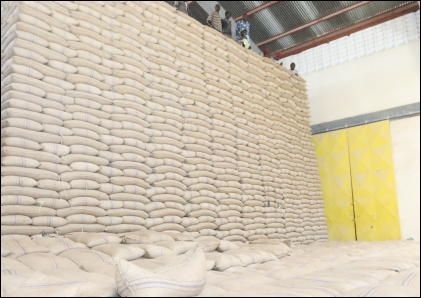×
The Standard e-Paper
Fearless, Trusted News

Farmers in Rift Valley have dismissed claims of hoarding maize occasioning grain shortage.
They say they have maize in their stores, accusing the state of putting bottlenecks in the purchase of the produce early this year.